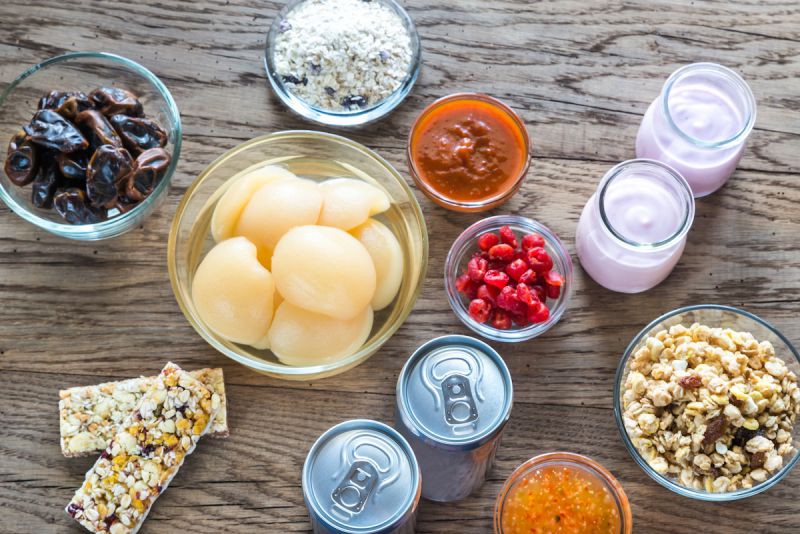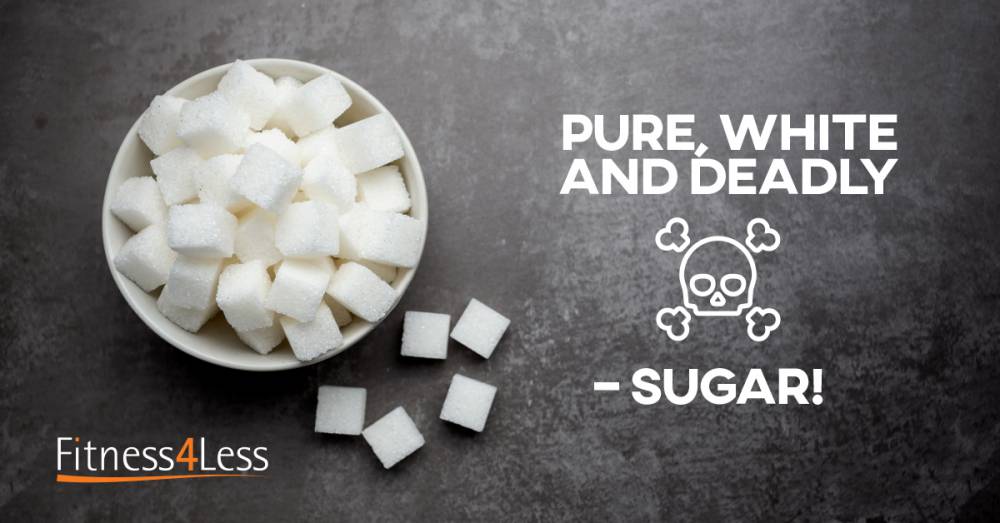Human beings have a natural liking for sweet things, which our brains connect with the calories we need to keep us alive and provide us with energy. Breast milk is sweet and we may therefore be programmed to associate sweetness with comfort and security, as well as nourishment, from our very early years.
Lots of natural foods, including most fruit and vegetables, contain a certain amount of sugar. Many plants have evolved to be palatable to animals and people, so that they are encouraged to eat them and thereby disperse their seeds. Although fruit and vegetables contain sugar in the form of fructose, they are also loaded with fibre and water and it is almost impossible to consume enough to be harmful, so they are therefore recommended as the foundation of a healthy diet.
The problem arises with
refined sugar, which is principally manufactured from the sweet juices of sugar cane or sugar beet. When sugar made from sugar cane was first introduced into Britain in the 16th Century, it was regarded as a “spice” and was enormously expensive. Only the very wealthy could indulge in this high-status commodity – hence Elizabeth 1's addiction to sugar and her famously rotten teeth!
Over the last two centuries, with the rapid industrialisation of food manufacture, sugar has become central to what we eat. It’s present in not only cakes, biscuits, and fizzy drinks, as you might expect, but also in a huge number of highly processed manufactured foodstuffs like baked beans, salad dressings, nut butters and pasta sauces, adding bulk, texture, mouth-feel and the sweetness that producers know we crave. In lists of ingredients added sugar can be itemised, somewhat misleadingly, as sucrose, glucose, fructose, maltose, molasses or hydrolysed starch, among other things.
Culturally, we’ve come to view offering sweet things as an expression of love and hospitality. Just think about the cakes we make to celebrate birthdays, weddings and special events and the sweets we give to children as a “treat” for being good. We even use words like “Honeybun”, “Sugar Baby” or “Sweetie” as terms of endearment.
 So why do we need to be wary of refined sugar?
So why do we need to be wary of refined sugar?The body breaks down refined sugar rapidly, causing insulin and blood sugar levels to skyrocket. The “empty calories” consumed are stored as fat and if we regularly eat too much sugar, the body may become resistant to insulin, a hormone produced by the pancreas to regulate blood sugar levels. As a consequence of the excessive amount of sugar we consume these days, we're now seeing an epidemic of diet-related ill health and diseases such as type 2 diabetes, obesity, tooth decay, cancer and heart disease.
On average, we eat 700g (140 teaspoons) of sugar each week. The NHS recommends that we should only be consuming 30g in the form of added refined sugar, honey or syrup. Many of us consume too much sugar and could benefit from reducing our consumption to make our diet more balanced. So how to cut down on the refined sugar in our diets that is expanding our waistlines and threatening our health and which foods are the main culprits when it comes to a high percentage of sugar?
Drinks – A bottle of cola contains 17 cubes of sugar; if it weren’t fizzy, you’d probably find it undrinkable. Instead, choose plain or sparkling water (beware flavoured water, as it may contain sugar) or unsweetened tea or coffee. If you’re used to adding sugar to hot drinks, cut down the amount gradually or try a calorie-free sweetener made from stevia, a plant that’s many times sweeter than sugar.
Breakfast cereals – many cereals and cereal bars are very high in sugar. Switch to porridge, no added sugar or salt muesli, Shredded Wheat or Weetabix with milk and some chopped fruit, such as a banana, pear or handful of berries. And don’t sprinkle your cereal with sugar!
Snacks – instead of biscuits or a chocolate bar, snack on some unsalted nuts, a piece of fruit, a rice cake or some plain popcorn.
Cake – if you really crave cake, choose a currant bun, fruit scone or slice of malt loaf, all of which are lower in sugar than that gooey chocolate brownie.
Main meals - try to avoid takeaways and ready meals and cook from scratch, basing your diet on fresh vegetables, fruit, dairy, whole grains and meat or pulses. Avoid ketchup and things like sweet chilli sauce; choose a low-sugar variety or use vinegar, mustard, pesto, herbs or chilli to flavour your food. Watch out for low-fat yoghurts too – they can be higher in sugar than the full-fat version topped with a little chopped fresh fruit. Remember, high-sugar foods contain over 22.5g per 100g and low-sugar foods 5g or less, so check labels. 90% of the added sugars in the average diet come from ultra-processed foods, whereas only 8.7% come from foods prepared from scratch at home using whole foods.
By watching your sugar intake and sticking to healthy eating, you will be doing both your waistline and your health a big favour and making your life a lot sweeter in the process!
![]()
![]()
![]() blog
blog![]()
![]()
![]() blog
blog
